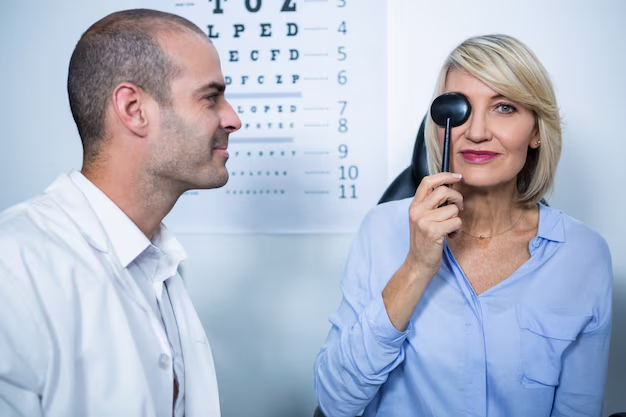Can Cataracts Be Reversed? Exploring Your Options
Imagine gazing at a beautiful sunset only to find its vibrant hues clouded by an ever-present fog. This blurry view can be a reality for those suffering from cataracts. A common eye condition, especially among the elderly, cataracts can significantly impair vision. But the pressing question remains: Can you reverse cataracts, or are they a permanent fixture once they develop? In this article, we'll dive deep into this topic, aiming to provide clarity and insight.
Understanding Cataracts: The Basics
What Are Cataracts?
Cataracts occur when the lens of your eye becomes cloudy, leading to decreased vision. This condition typically develops slowly and can affect one or both eyes. Though more common in older adults, cataracts can also result from injury, diseases like diabetes, or even prolonged use of certain medications.
Symptoms of Cataracts
Recognizing the symptoms can help in early detection. These include:
- Blurred or cloudy vision
- Difficulty seeing at night
- Sensitivity to light and glare
- Seeing halos around lights
- Frequent changes in eyeglass or contact lens prescriptions
Understanding the Causes
Cataracts can be attributed to a variety of factors, such as:
- Aging: As you age, the lenses in your eyes naturally become less flexible, less transparent, and thicker.
- Genetics: Family history might play a significant role.
- Lifestyle Choices: Poor diet and excessive UV exposure can increase risk.
Can Cataracts Be Reversed Naturally?
Many people turn to natural remedies in hopes of reversing cataracts without surgery. While there's much talk about home remedies, it's essential to examine their validity based on existing medical research.
Natural Remedies and Their Effectiveness
Dietary Changes: A nutrient-rich diet can help maintain eye health. Antioxidants like Vitamin C and E, lutein, and zeaxanthin may help slow cataract progression but won’t reverse them.
Herbal Supplements: Despite claims, there's no substantial scientific evidence proving that herbal supplements can reverse cataracts.
Lifestyle Adjustments: Wearing sunglasses to block UV rays, managing diabetes effectively, and reducing alcohol consumption can improve overall eye health, possibly delaying cataract progression.
Takeaway: While natural methods can promote eye health and potentially slow down cataract development, they do not reverse existing cataracts.
The Role of Surgery in Cataract Treatment
Cataract Surgery: A Reliable Option
Surgery is the most effective treatment for cataracts. During the procedure, the cloudy lens is removed and replaced with a clear artificial lens. This surgery is one of the safest and most performed procedures worldwide, with a high success rate in restoring vision.
- Types of Cataract Surgery:
- Phacoemulsification: Uses ultrasound waves to break up the lens into small pieces, which are then removed.
- Extracapsular Cataract Extraction: Involves removing the lens in one piece.
Benefits of Surgery:
- Restores clear vision
- Improves quality of life
- Has a quick recovery time
Risks and Considerations
As with any surgery, there are risks, including infection, bleeding, and retinal detachment. It’s crucial to discuss potential risks with an eye care professional to make an informed decision.
Choosing the Right Time for Surgery
Determining when to have cataract surgery can depend on how much the cataract affects daily life. Some might decide on surgery as soon as they notice vision changes, while others might wait until their cataracts significantly interfere with daily activities.
Innovations and Future Perspectives in Cataract Treatment
Advances in Cataract Surgery
Ongoing research and technological advancements continue to improve surgical outcomes, making procedures less invasive and more effective.
Laser-Assisted Surgery
Laser technology has introduced enhanced precision in cataract surgery, making the process more accurate than traditional methods.
Emerging Treatments
Research is exploring pharmaceutical treatments that could potentially dissolve cataracts. While promising, these treatments are still under investigation and not yet available to the public.
Eye Health: Preventing Cataracts
Tips for Maintaining Eye Health
- Regular Eye Exams: Early detection is vital.
- Healthy Diet: Rich in fruits, vegetables, and omega-3 fatty acids.
- Protection from UV Rays: Using sunglasses with adequate UV protection.
- Healthy Lifestyle: No smoking, limited alcohol, and regular exercise.
Role of Regular Medical Check-ups
Routine visits to an ophthalmologist can catch cataracts early and monitor their progression, making it easier to plan appropriate interventions.
Navigating Life with Cataracts
Adapting to Vision Changes
- Use brighter lighting in your home.
- Consider using magnifying lenses for reading.
- Mark steps or key areas with contrasting colors to avoid trips.
Making Informed Decisions
Cataracts can sometimes feel inevitable, but the advancements in medical treatment and the importance of preventive care offer a ray of hope. It's essential to gather adequate information and consult healthcare professionals when considering interventions, especially surgery.
Empower Yourself
By understanding cataracts and staying informed about possible treatments, you can make well-informed decisions that best suit your lifestyle and health needs.
Quick Recap: Understanding Cataracts 👁️
- Symptoms: Blurred vision, halos, sensitivity to light
- Management: Diet, lifestyle, and sunglasses for prevention
- Treatment: Surgery is the only way to remove cataracts
- Prevention Tips: Healthy diet, UV protection, no smoking
This overview emphasizes understanding your options, maintaining eye health, and making informed decisions when managing cataracts. Remember, an eye care specialist is your best ally on this journey. 🕶️✨

Related Articles
- Are Cataracts Curable
- Are Cataracts Genetic
- Are Cataracts Hereditary
- Are Cataracts Nuclear Sclerosis
- Are Cataracts Painful
- Are Ivizia Eye Drops Okay After Cataract Surgery
- Are You Awake During Cataract Surgery
- Are You Awake For Cataract Surgery
- Are You Put To Sleep For Cataract Surgery
- Are You Sedated For Cataract Surgery
